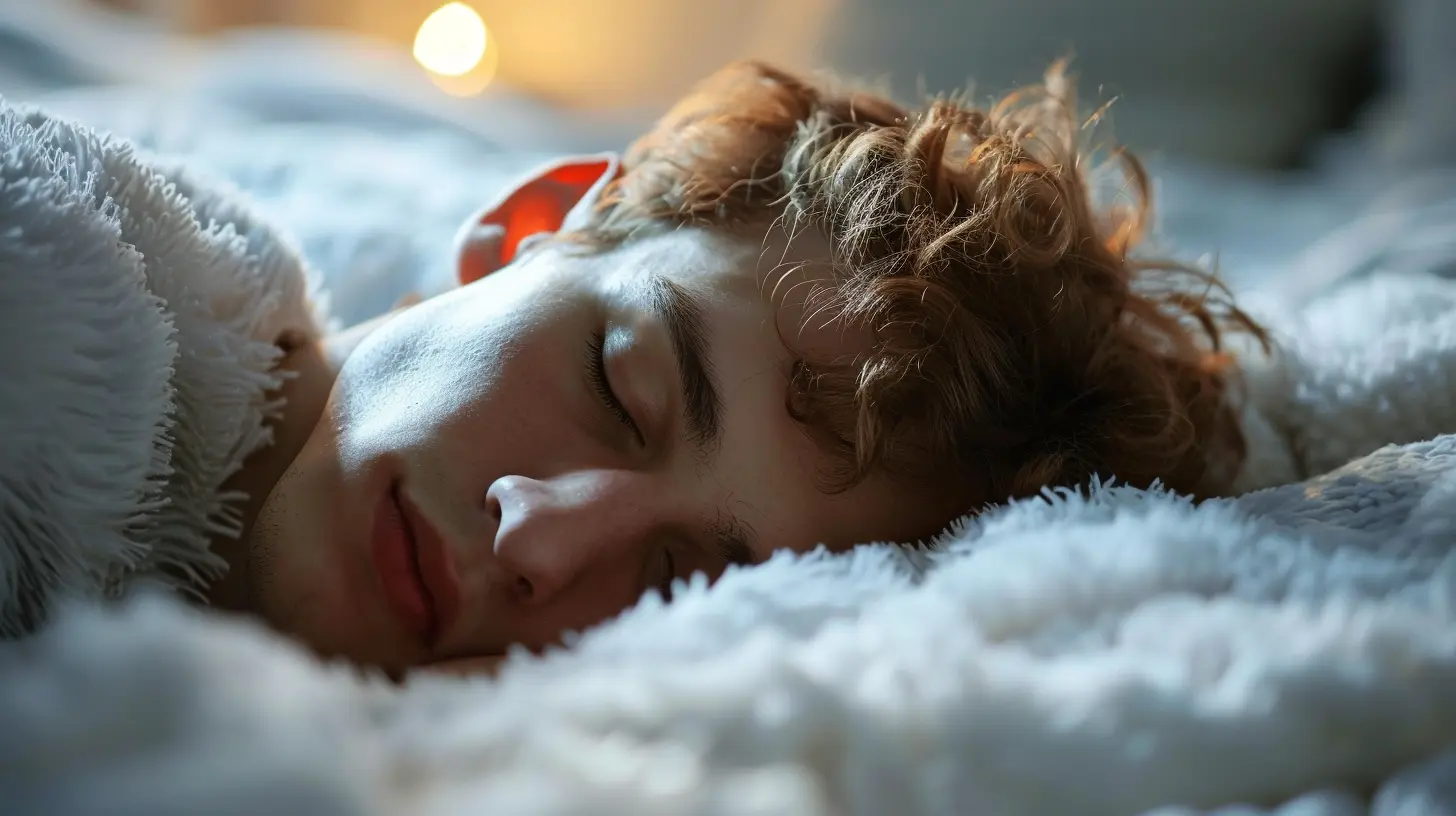Common Sleep Disorders and How to Address Them
4 September 2025
Do you often find yourself tossing and turning at night instead of getting restful sleep? You're not alone. Sleep disorders affect millions of people worldwide, leading to fatigue, irritability, and other health complications. Poor sleep doesn’t just make you tired—it can seriously impact your physical and mental well-being.
In this article, we'll dive into some of the most common sleep disorders, what causes them, and, most importantly, how you can address them to get the restful sleep you deserve. 
1. Insomnia: The Struggle to Fall and Stay Asleep
What Is Insomnia?
Insomnia is one of the most common sleep disorders, characterized by difficulty falling asleep, staying asleep, or waking up too early. Whether it’s caused by stress, bad sleep habits, or an underlying health condition, insomnia can leave you feeling exhausted and overwhelmed.Causes of Insomnia
- Stress and Anxiety – Racing thoughts can make it nearly impossible to fall asleep.- Poor Sleep Hygiene – Drinking caffeine late at night, using screens before bed, and inconsistent sleep schedules can all contribute.
- Medical Conditions – Chronic pain, asthma, and even acid reflux can keep you awake.
How to Address It
- Set a Sleep Schedule – Go to bed and wake up at the same time every day, even on weekends.- Limit Screen Time – Blue light from phones and TVs can mess with your body's melatonin production. Try reading instead.
- Practice Relaxation Techniques – Deep breathing, meditation, or warm baths before bed can help calm your mind.
- Avoid Stimulants – Say no to caffeine and nicotine at least 4–6 hours before bedtime.

2. Sleep Apnea: The Hidden Breathing Disorder
What Is Sleep Apnea?
Sleep apnea is a serious disorder where your breathing repeatedly stops and starts during the night. It can lead to loud snoring, daytime fatigue, and even serious health issues like heart disease if left untreated.Causes of Sleep Apnea
- Obesity – Excess weight can block airways.- Alcohol and Sedatives – These relax the throat muscles, leading to airway obstruction.
- Smoking – Increases inflammation and fluid retention in the airway.
How to Address It
- Lose Excess Weight – Shedding extra pounds can significantly improve symptoms.- Change Sleeping Position – Avoid sleeping on your back, as it can worsen airway blockage.
- Use a CPAP Machine – This device helps keep your airway open and is a common treatment for obstructive sleep apnea.
- Quit Smoking and Reduce Alcohol Consumption – These lifestyle changes can improve your breathing during sleep.

3. Restless Leg Syndrome (RLS): The Urge to Move
What Is RLS?
Restless Leg Syndrome (RLS) is a condition that causes an uncontrollable urge to move your legs, usually at night. It’s often accompanied by uncomfortable sensations like itching, tingling, or throbbing.Causes of RLS
- Iron Deficiency – Low iron levels can contribute to the condition.- Genetics – A family history of RLS increases your risk.
- Pregnancy – Many women experience RLS during the third trimester.
How to Address It
- Increase Iron Intake – Eat iron-rich foods like spinach, red meat, and beans.- Exercise Regularly – Light physical activity can help reduce symptoms.
- Avoid Caffeine and Alcohol – These can make symptoms worse.
- Stretch Before Bed – Gentle stretching can relax your muscles and make sleep easier.

4. Narcolepsy: Extreme Daytime Sleepiness
What Is Narcolepsy?
Narcolepsy is a neurological disorder that affects the brain's ability to regulate sleep-wake cycles. People with narcolepsy may suddenly fall asleep during the day, experience sleep paralysis, and even hallucinate when waking up or falling asleep.Causes of Narcolepsy
- Lack of Orexin – A neurotransmitter that regulates wakefulness is often deficient.- Genetics – Family history can increase your risk.
- Autoimmune Disorders – Some cases of narcolepsy are linked to autoimmune dysfunction.
How to Address It
- Stick to a Routine – Taking scheduled naps can help manage daytime drowsiness.- Avoid Heavy Meals Before Bed – A full stomach can disrupt sleep cycles.
- Medications – Stimulant medications or antidepressants can be prescribed to help control symptoms.
5. Sleep Paralysis: The Feeling of Being Trapped
What Is Sleep Paralysis?
Sleep paralysis is a terrifying condition where you wake up but can’t move or speak. Some people even report seeing shadowy figures or feeling a presence in the room. It usually happens during the transition between sleep and wakefulness.Causes of Sleep Paralysis
- Sleep Deprivation – Not getting enough sleep increases the likelihood of episodes.- Stress and Anxiety – High stress levels can trigger sleep paralysis.
- Poor Sleep Schedule – Frequent disruptions in sleep patterns can contribute.
How to Address It
- Improve Sleep Hygiene – Get at least 7–9 hours of sleep per night.- Reduce Stress – Practice relaxation techniques like meditation or deep breathing.
- Sleep on Your Side – Sleeping on your back can make paralysis episodes more frequent.
6. REM Sleep Behavior Disorder (RBD): Acting Out Dreams
What Is RBD?
REM Sleep Behavior Disorder (RBD) is a sleep disorder where people physically act out their dreams, often leading to injuries. Unlike sleepwalking, RBD usually involves kicking, punching, or even jumping out of bed.Causes of RBD
- Neurodegenerative Disorders – Linked to Parkinson’s disease and other brain conditions.- Medication Side Effects – Some antidepressants can trigger RBD.
- Brainstem Dysfunction – The part of the brain that controls muscle paralysis during REM sleep may not work properly.
How to Address It
- Create a Safe Sleep Environment – Remove sharp objects and use padded bedding.- Medication – Certain drugs, like clonazepam and melatonin, can help control symptoms.
- Improve Sleep Quality – Keeping a consistent sleep schedule and reducing stress may help.
Final Thoughts
Sleep disorders can turn restful nights into frustrating battles. But the good news? Many of these conditions can be managed—or even completely resolved—with the right lifestyle changes, treatments, and habits.If you're constantly struggling with sleep, don’t ignore the problem. Poor sleep can affect everything from your mood to your long-term health. Start making small changes today, and if needed, reach out to a healthcare professional for extra guidance.
After all, you deserve restful, rejuvenating sleep every night.
all images in this post were generated using AI tools
Category:
Sleep HealthAuthor:

Tiffany Foster
Discussion
rate this article
1 comments
Liv McCoy
Sleep disorders can significantly impact overall health and well-being. Understanding the common types, like insomnia and sleep apnea, is crucial. Simple lifestyle changes, such as a consistent sleep schedule and reducing screen time before bed, can make a noticeable difference in sleep quality.
September 22, 2025 at 4:37 AM

Tiffany Foster
Absolutely, recognizing sleep disorders like insomnia and sleep apnea is vital for health. Implementing lifestyle changes, such as maintaining a consistent sleep schedule and limiting screen time, can greatly improve sleep quality. Thank you for your insights!


